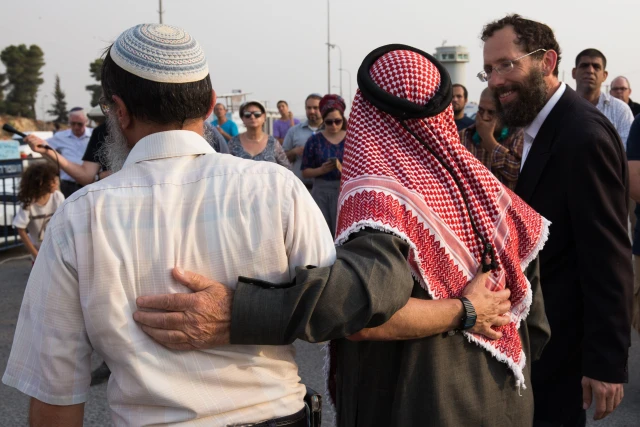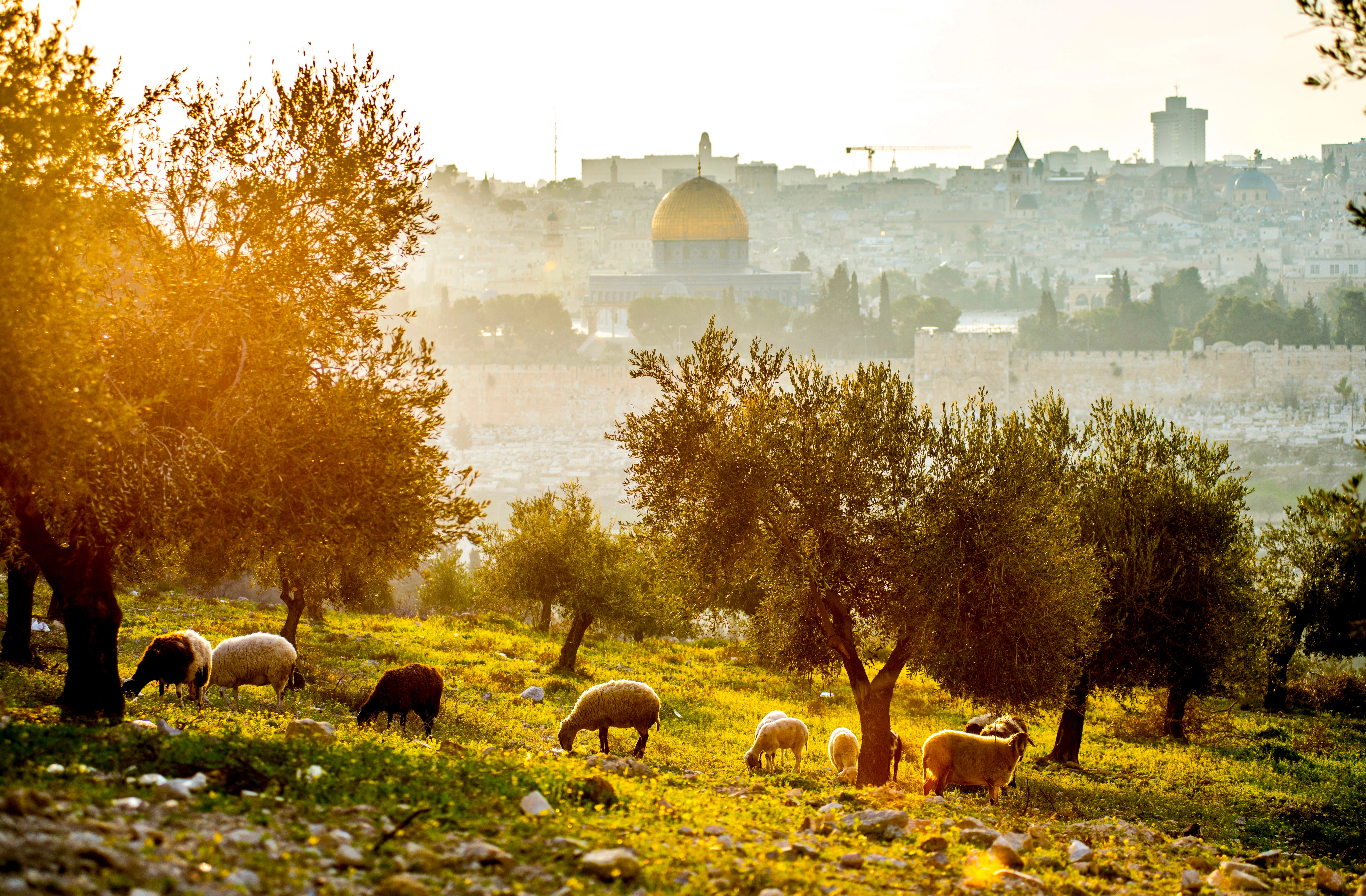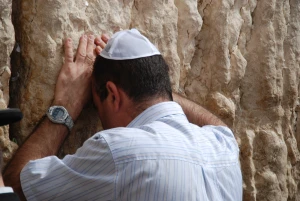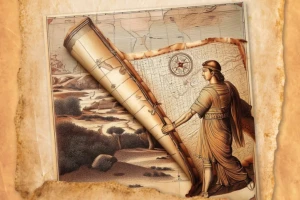Ezekiel’s final vision: God’s plan to solve the Israeli–Palestinian conflict
Ancient biblical prophecy offers a framework for real peace in the modern Middle East

Constant tension, bloody wars, and failed negotiation attempts characterize the relationship between Jews and Arabs in the Land of Israel. Everyone involved in the conflict — like the vast majority of those watching from near or far — shares a deep longing for one thing: an end to this tragic struggle. Yet there is no consensus on how that can be achieved.
Meanwhile, more and more western countries—Sweden, most recently Spain, Norway, and Ireland—have officially recognized the Palestinian state, and several other national leaders are considering similar steps.
This comes as no surprise, since most political leaders in the Christian world ignore the fact that the globally forced two-state solution is rejected by both Israel and the vast majority of Palestinians—many of whom support it only tactically, as a step toward Israel’s elimination—and they continue to think exclusively within the framework of this already doomed proposal.
But let us set the leaders aside and consider the hundreds of millions of Evangelical Christian believers. Everyone must have some kind of answer when our children—often influenced by social media or some anti-Israel channel—ask: What kind of solution could bring real, lasting peace to the Israeli–Palestinian conflict? It's a hard question, and many deflect it by saying that peace will only come in the Messianic age. While this is true, it essentially repeats the now evidently false doctrine from before October 7—that the Israeli–Palestinian conflict cannot be resolved, so we must focus not on resolving it, but on managing it and preserving some kind of status quo.
But if we want to give our children a more substantial answer, we must first be willing to engage with the question ourselves—not only in prayer.
That becomes all the more evident when we recognize that even casting a vote in a non-mandatory national election is, by definition, a political act—regardless of how privately or prayerfully it is made. If we accept that kind of participation, we cannot dismiss the legitimacy of seeking a biblically grounded vision for political peace. Prayer is essential—but it is no substitute for wisdom, responsibility, and biblical clarity.
What can we do for Israel, especially in these times of war, beyond prayer?
A great deal. However, since this is a battle with spiritual roots, the most important thing is to walk in truth and preserve our thoughts and expressions from all forms of anti-Semitic, anti-Israeli, and anti-Palestinian hatred or propagandistic fake news. In the spirit of: “Blessed are the peacemakers, for they shall be called sons of God” (Matt. 5:9).
From a human point of view, this may seem quite impossible—but God’s Word helps by directing our attention to specific aspects of the coming peace, giving hope and reference points for how to relate to today’s seemingly hopeless situation.
Chapters 47–48 of the book of Ezekiel contain a prophecy that is surprisingly relevant to this issue from both a geographical and socio-political perspective.
Evangelical believers hold that the Bible is God’s revealed Word—and therefore see the establishment of the State of Israel not as a coincidence, but as the fulfillment of biblical prophecies concerning the return of the Jewish people to the Promised Land in the last days.
They reject the claim—commonly made by proponents of the antisemitic ideology of replacement theology—that interpreting these prophecies as referring to the modern rebirth of Israel is a misreading. Rather, they view this fulfillment as clear evidence of the truth of Scripture and the faithfulness of God.
That is why, for evangelicals, Ezekiel’s vision is not merely symbolic—it provides a concrete prophetic framework for understanding Israel’s future in God’s redemptive plan.
Ezekiel 47–48 clearly defines two elements that are quite dramatic from today’s perspective: God’s will concerning Israel’s future borders, and the legal status of those living within them.
Today, it is especially timely to revisit these two themes, and it may be helpful to observe current events in their light. It is also worth considering under what conditions and realistic compromises they might be applied in a way that creates a genuine win-win outcome—one that allows both the Jewish and Arab inhabitants of the Promised Land to benefit mutually.
God’s will concerning Israel’s borders
In this prophetic text, God clearly designates the Jordan River as the future eastern border of Israel. This can help believers struggling with the dilemma of whether to support a two-state solution that would place Israel’s eastern border west of the Jordan River. (It is a fascinating topic worthy of a separate article that while the Euphrates is mentioned in four places in the Bible as the eastern border of the land promised to Abraham’s descendants, nearly thirty times the Jordan is named as the eastern border of the land promised to Isaac and Jacob.)
By designating the borders, God also orders the future division of the country into 13 parallel strips running north to south—district-like areas—including Judea, Samaria, and Gaza.
God’s will concerning the legal status of the inhabitants of the Holy Land
“And it shall be that you will divide it by lot as an inheritance for yourselves, and for the strangers who dwell among you and who bear children among you; they shall be to you as native-born among the children of Israel; they shall have an inheritance with you among the tribes of Israel. And it shall be that in whatever tribe the stranger dwells, there you shall give him his inheritance,” says the Lord God. (Ezekiel 47:22–23)
This remarkable call builds upon the divine declaration found in the book of Judges:
“Because this nation has transgressed My covenant which I commanded their fathers, and has not heeded My voice, I also will no longer drive out before them any of the nations which Joshua left when he died.” (Judges 2:20–21)
It also reaffirms the prophetic directive repeatedly found in the Law of Moses:
“One law and one custom shall be for you and for the stranger who dwells with you.” (Numbers 15:16)
In Ezekiel, however, this principle is no longer presented merely as a legal standard, but as a practical command ensuring equal access to inheritance.
In other words, within the borders defined above, every resident—whether Jewish or non-Jewish—will enjoy equal rights under God's covenantal order.
How?!—one might rightly ask. That Israel should lose its Jewish character? That a demographic trend could again deprive the Jewish people of the land their ancestors received from God?
No, that is not the case—such a scenario would contradict God’s revealed plan in the Bible.
Then how?
Within Israel’s current, internationally recognized borders, there are only six districts. Of these, only one has a Jewish population that is smaller in proportion than the non-Jewish population. Beyond these districts, however, there are millions of Arabs living in Judea and Samaria, about half a million Jewish settlers, and nearly two million residents in the Gaza Strip.
What is really interesting is that if we take the latest statistical data from Israel’s Central Bureau of Statistics and the Palestinian Authority, examine the ethnic breakdown of each area’s population, and divide the territory stretching from the Jordan River to the Mediterranean into 13 equal-width parallel districts based on the prophetic text—each district being approximately 0.286° latitude in height, covering the full north–south span of modern Israel from Metula to Eilat (≈3.72°)—then even when counting the entire population, Jews would still be in a minority in only two of the 13 districts.
While this alone would not be sufficient to preserve Israel’s current character, four key principles could neutralize the security and societal risks that are already present and expected to grow in the future—and at the same time allow Arab–Palestinian residents to genuinely feel at home in the country.
It is important to note that each of the four points listed below lies entirely in Israel’s hands. Even if implemented unilaterally—without the consent of the Arab population or the international community—they would immediately improve the current situation and, by their very nature, dramatically accelerate Jewish–Arab reconciliation.
Four key principles
Voting rights: Only those would be eligible to vote in parliamentary elections who do not reject the obligation to serve the country—whether in military or civilian form. This would encourage both the ultra-Orthodox population and Arab citizens toward greater social integration.
In saying this, we should acknowledge that, in the context of voting rights, the Western liberal tradition of separating rights from responsibilities—while common in developed societies—may not be applicable in a constructive or beneficial way in the Middle Eastern context at this time.
However, let us add, by way of emphasis: the law would apply equally to everyone. The right to vote—for both ultra-Orthodox and Arab citizens—would depend solely on their own personal choice to fulfill or reject national service.
Compensation for displaced Arab residents: After decades of negotiations, in which the issue of compensation repeatedly led to dead ends between Jewish and Palestinian leaders, an agreement must finally be reached. This would ensure compensation for those Arab residents who fled their homes and lost their family inheritance.
Guaranteeing constitutional equality: In accordance with the biblical command that the same law apply to both Jews and non-Jews in the Promised Land, Israel should finally adopt a constitution that guarantees citizenship and equal rights to all residents from the Jordan River to the Mediterranean Sea.
The internationally recognized passport granted to West Bank and Gaza Palestinians and the above-mentioned financial compensation would also give an opportunity to those Arabs who do not recognize the Jewish state to freely leave the Promised Land and start a new life elsewhere, wherever they find opportunity.Electoral system: A new electoral system would ensure that demographic changes do not affect political balance, with all 13 regions delegating the same number of representatives to the Knesset. This would eliminate the risk that demographic changes might allow any religious (Muslim or ultra-Orthodox Jewish) or ethnic group to alter the country’s current character.
“If you will it, it is no dream”
As unrealistic as these four decisions may seem amid today’s political and social realities, Ezekiel’s vision—defining Israel’s future borders and the legal status of its citizens in God’s name—appears even more radical. Yet these declarations are unmistakably clear: this is God’s will. The real question is not whether it is possible, but under what conditions it could be fulfilled.
In Ezekiel’s vision, we not only read about political and social restructuring but also about a stream of living water flowing from Jerusalem that reaches the Dead Sea and brings it to life. This is the promise of the Land’s agricultural and ecological renewal, spiritual rebirth, and historical healing—a picture of complete divine restoration after a blood-soaked past.
The four principles above offer one possible framework for this divine solution—one that is based on God’s Word but whose realization requires bold and wise leadership, and a shared will born from wide-ranging, honest societal dialogue.
If God wills it—why shouldn’t we?
As Herzl said: “If you will it, it is no dream.”

Is All Israel News’ faith-based reporting important to you? Be part of it—help us continue by becoming a $5/month supporting partner.

Yehuda is a former teacher in Israel's first accredited Messianic school, based in Jerusalem, holding academic degrees in mathematics, physics, and philosophy. He joined the ALL ISRAEL NEWS staff in August 2023.
You might also like to read this:










